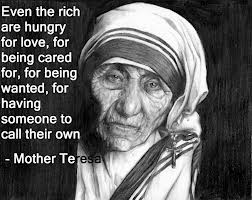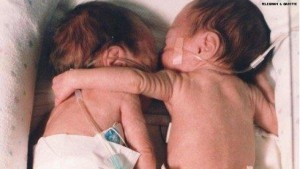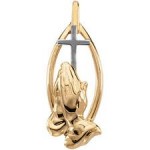She was my mother. And more. We were best friends. It had nothing to do with the years she shared grandmothering my two children. It was more than our early morning conversations about stocks and bonds, as I sipped coffee and watched her cook biscuits and southern gravy.
Our friendship extended beyond the family gossip we rehashed each time we were together, as if we were telling these stories for the first time. Our friendship simply was. Like the oceans, pine trees, and lava rock, it needed no reason. Ours was a friendship of quiet, silent, absolute love. Friendship and love that stood rock solid.
Mother was a mover of mountains. Literally. Each summer, at our mountain cabin, she loaded three rambunctious dogs into a Toyota Jeep and bumped over rugged roads up mountain slopes. Heavy gray cowhide workman’s gloves protected her tiny hands, as she loaded up piles of sharp black lava rock, careful to leave small spaces around the rocks inside the Jeep for her dogs. Then she turned the Toyota around.
At home again, three dogs tumbled out of the Jeep while Mother headed for the kitchen. She would open the fridge, pop the tab on an ice cold can of Miller Lite, and walk outside to survey the next section of wall to be raised. Year by year, stone by stone, she built a low wall of dark, rich rock stacked around the wide circular driveway.
Mother matched her persistence with an equal measure of patience. She was in no hurry. Moving rocks allowed her to enjoy brisk sunny days in the mountains. It gave her an excuse to tour back mountain roads with her dogs, and it provided a reason to reward her energies with cold beer. Why hurry?
If she could push and tug rocks into position with fierce determination, she could also coax a number 10 short needle through a plump quilt with the greatest of finesse. What delightful hours we spent together bent over a black nine-patch quilt, sewing, and discussing ways to make our stitches even and tiny. We never hurried. Running small stitches along seam lines was simply our excuse for passing time together in constructive, quiet contemplation.
I never worried about Mother. When my father died of lung cancer brought on by 45 years of smoking, she showed us all the stuff of which she was made. She nursed Daddy at home to his death. I went with her to the mortuary to make arrangements for his cremation, but a week later, when I asked about returning to the mortuary with her, she told me not to worry. Coming home with Daddy was something she preferred to do on her own.
Friends suggested to her that she settle in close by her children, but Mother would have nothing to do with that idea. Daddy was gone, but she wasn’t. She was determined to live the best of life.
Within the year, Mother sold the family home my father had designed 25 years earlier and moved to the country. She was ready to move on. Regrets were useless, if there were any. She never said. She simply knew what she must do. She was my Rock of Gibraltar.
Mother knew how to take care of herself. At 5:00 a.m. every morning, the sun still below the rise of the hill, she put on her swimsuit in 40-degree weather and drove through the darkness to the community pool for water aerobics. A tremendous cook, proud of her vegetable garden, she was always ready at a moment’s notice to whip up a delectable stir-fry. With her own mother approaching 90 years of age, the future looked bright.
I certainly didn’t expect her to be struck overnight with a brain tumor. Like the jeep running into her beloved rock wall, cancer knocked her feet out from under her, making her an instant invalid. Confused about the order of pills and meals, and unable to read her stock reports, she depended on us for every personal need.
Good fortune provided a leave from my teaching job, and I threw myself into every moment of Mother’s day, grateful to be useful and to be sharing her final months. We cried together for the first few days. But as in all things we had shared in the past, we knew when to move on. Like lava rocks, secured by jagged, rough points set into the grooves of other lava rocks in a growing wall, our love was solid. Unmovable.
I moved into Mother’s home and became her cook, her nurse, her accountant, advocate, priest, chauffeur, scribe, and aide. She always showed appreciation for the Malto-Meal prepared to her taste and the proper ratios of instant coffee and cream.
Even the hardest of experiences gave us reasons to celebrate life together. What a victory when we found a way to lift her from the low couch where she spent the day! She and I developed a tight bear hug, with her toes resting on my feet and our faces pressed tightly, that allowed me to swing her into her wheelchair–an adventure that always ended with giggles and salutes.
I chased down medications and learned nursing duties I never thought myself capable of. In the daily routine that evolved, I watched the direction of the room fan– making sure to cool her without chilling her, kept the radio tuned to a soothing station, opened and closed window blinds as each day brightened and darkened, learned her favorite evening television shows, and made sure we went outside on the patio as often as she could comfortably go.
When Mother was no longer able to speak, I sat by her bedside waiting for those infrequent moments when she would open her eyes and I could smile a hello to her. And finally, one early morning, with a faint pink halo outlining the mountains outside her window and Mother laying in my arms, I shared her final breath. She was gone.
After the first busy days of change, silence settled in. In my despair at having to move on without Mother, walking through the silence of her empty house, I faced the same loneliness I now knew she experienced during her five years of widowhood. Unexpectedly, regrets surfaced, taking control, breaking down the wall of secure love I had never questioned until now.
How many lonely nights after Daddy’s death had Mother suffered in silence? How many times had I called to receive her comfort during my personal trials, unaware of her own need for comfort?
Were the last four months at her bedside truly an act of selfless dedication? Only now, able to reflect alone upon those months, did I have the courage to admit that sitting at her bedside was what I had needed. Had Mother really wanted privacy? Had I been too much in her face?
Regrets attacked even the simplest acts of love. Over and over, I told her, “I love you.” Over and over, my voice conveyed the sense of loss I felt. One morning, in a burst of final effort, Mother inhaled enough air to expel a forceful, “I Love You,” her reassurance to me. But it wasn’t enough. I hung on. Oh, that I had been able to rest in the quiet certainty of her love that had surrounded me for more than 40 years.
And some regrets are just too much to handle. On her final morning, Mother opened her eyes in terror. The nurse was telling me she would make the trip to the pharmacy for the morphine. Mother knew morphine. She knew it marked the final stage of the same journey through cancer she had shared with my father as his nurse, a journey she was repeating in every detail as my patient. I promised her, “Mother, I won’t give you morphine unless I ask you, unless you say it’s okay.” Her eyes softened with gratitude, and we sat in silence.
How was I to know I would have to break that promise within 12 hours? Where were the doctors and nurses at midnight when I really needed them? Why did I have to be alone to decide? But I was. I squeezed her hand and whispered, “Mother, squeeze my hand if you can answer me.” In despair, my hand waited. I knew I would have to do what I never thought I could, give Mother the medicine that would take her away from me forever.
In the darkness, I leaned to her ear, “Mother, I can’t ask you. You can’t squeeze my hand. Mother, please forgive me. I love you. I can’t bear to see you hurt anymore. I don’t know what else to do. I wish you could tell me, but you can’t. I love you.”
The nurses who came later used all of their experience to tell me I had done the right thing. But that didn’t stop my regrets.
Life without her wasn’t easy, a succession of empty spots where quilting and bear hugs used to be. But as Mother taught me, time moves on and so must we. The family cabin in the mountains needed painting, and when neighbors called to inform us fierce March winds had removed a row of shingles, I packed the van and headed north.
As I pulled into the drive, I surveyed the lava rock wall. No happy dogs ran up to greet me, no call from the kitchen door invited me in for Miller Time. I looked up to the roof and counted the bare spots where shingles had broken loose, making a mental note of additional needed repairs: bird holes at the upstairs window, a broken antenna, and wood sorely in need of paint.
I looked down to the ground. Old, dead sunflower pods laid soggy in the patches of melting snow. Stepping from the car, I followed the sunflower trail along the lava wall and collected the pods to dry. I stopped. There at my feet, a sign of Mother’s long absence, was a lonely lava rock.
Slowly, I bent down for the rock to set it back on Mother’s wall. But it tottered. The wall had settled into a crooked list, and I knew it wouldn’t meet with her approval. I knew she would insist on removing this section of the wall to rebuild it properly.
I dropped to my knees. The breeze brushed against my cheeks. I looked up to watch the pines bending against the bright blue skies.
Down with the rocks and up again, I matched each jagged lava edge to form a straight vertical line, saving the tiniest rock for last. It would fill a small gap to make the top of the wall flat. Reaching for this final rock, a sharp gust of wind caught the sand and sprayed it across my face. I raised my eyes and blinked. Tears washed away the fine grains. In the quiet of the crisp mountain air, my hair sailing across my face, I heard her voice return. Quiet, sure, and filled with love, she spoke to me.
“Jane, it’s all right. You did the only thing you could do.” A tear fell on my knee, making a dark blue circle. “Jane,” she whispered with the breeze, “you did your best. You did everything you could.” And like the mountains she had moved, my heart turned around, leaving regrets behind.
The wind quieted down. A bluebird sailed across the drive, landing in a low juniper bush. He cocked his head at me and watched as I reached once again for the last lava rock. Carefully, I put it in its place. My hand rested upon the top of the wall, feeling for the cracks with the tips of my fingers. Still on my knees, the light breeze began again, and my eyes followed around the curve of the low lava wall as I bowed my head in thanks.
__________________
A Cup of Comfort for Mothers & Daughters: Stories that celebrate a very special bond, Colleen Sell, ed., contributor, “Lava Love,” 2002.
 Ten years ago I vowed that I would never marry. Men did not disgust me, but it seemed an unnecessary contrivance. Now, I am happily married. Vic and I would be just as happy unmarried, I am sure. But the contrivance was necessary for family peace.
Ten years ago I vowed that I would never marry. Men did not disgust me, but it seemed an unnecessary contrivance. Now, I am happily married. Vic and I would be just as happy unmarried, I am sure. But the contrivance was necessary for family peace.
 easier than trying to enforce some kind of proficiency which would result in failing half of my students.
easier than trying to enforce some kind of proficiency which would result in failing half of my students. comfort…mental peace…the path I follow is irrelevant.
comfort…mental peace…the path I follow is irrelevant. laisse-faire attitudes.
laisse-faire attitudes.





